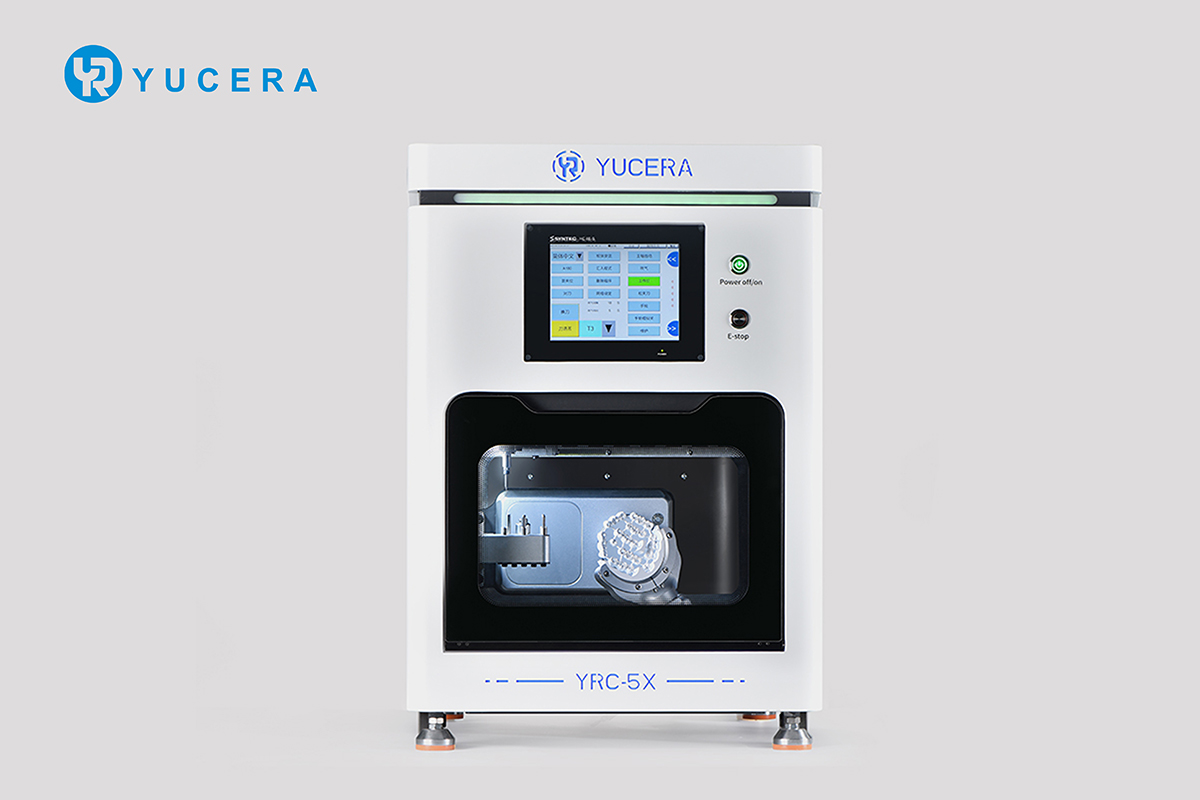What new skills do denture technicians need to apply digital technologies?
2025-02-22
2025-03-11
Typically, dental laboratories may choose specialized milling machines for dry, wet, or metal material processing depending on their specific needs. Here are some comparative performance features:
|
Characteristic |
Dry Milling Machine |
Wet Milling Machine |
Metal Milling Machine |
|
Milling Method |
Dry milling, without coolant |
Wet milling, with coolant |
Wet milling, with coolant |
|
Applicable Materials |
Zirconia, PMMA, wax, composite resin, model plaster (soft materials) |
Lithium disilicate glass ceramics, some hard materials |
Titanium alloy, cobalt-chromium alloy, glass ceramics (metals and hard materials) |
|
Cooling System |
No coolant, uses air cooling |
Equipped with coolant nozzles and cooling system |
Equipped with an efficient liquid cooling system |
|
Milling Precision |
Suitable for soft materials, medium precision |
High precision, suitable for hard materials |
High precision, suitable for high-demand metal processing |
|
Maintenance Requirements |
Requires a separate vacuum cleaner for dust removal. |
Regular cleaning and maintenance of the cooling system required |
High maintenance requirements, including regular inspection of the cooling system and tool wear. |
|
Application Scenarios |
Suitable for making temporary restorations, crowns, inlays, wax patterns, models, etc. |
Suitable for making hard restorations such as all-ceramic crowns, veneers, and personalized abutments. |
Suitable for making metal restorations such as implant abutments, bridges, metal crowns, additions, bars, frameworks, and steel supports. |
|
Equipment Cost |
Lower initial investment |
Moderate initial investment |
Higher initial investment |
|
Advantages |
Simple structure, low maintenance cost; suitable for soft materials |
High precision, suitable for hard materials; reduces tool wear |
High precision, suitable for metal processing; durable |
|
Disadvantages |
Not suitable for hard materials; limited precision |
Requires coolant, complex maintenance |
High initial investment; high maintenance cost; relatively slow processing speed |
|
Representative Equipment |
Yucera YRC-5X+YRC V5 Cleaner |
Yucera YRC-6X |
Yucera DS-100 |

More Highlights:
Dry Milling Machine: Suitable for milling soft materials such as zirconia and PMMA. It has a simple structure and low maintenance costs but is not suitable for hard materials.
Wet Milling Machine: Suitable for milling hard materials such as glass ceramics. It offers high precision but requires coolant and more complex maintenance.
Metal Milling Machine: Designed specifically for milling metals. It offers high precision and is suitable for high-demand metal restorations but comes with a higher initial investment and maintenance costs.
The choice of milling machine should be based on the actual needs of the dental laboratory, the types of materials to be processed, and the budget.